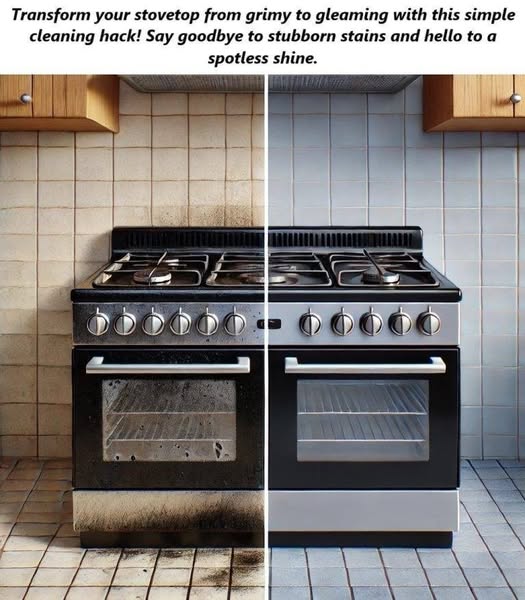ADVERTISEMENT
Maintenance Cleaning: Wipe down your stovetop daily after cooking to prevent buildup.
Deep Cleaning: Aim for a thorough deep clean once a week or after heavy cooking sessions to keep grime manageable.
Storage Tip: Keep your cleaning supplies organized and within reach — a small basket under the sink works perfectly.
Variations:
Lemon Power: For an extra fresh scent, add a few drops of lemon juice to your vinegar spray.
Baking Soda Paste: Mix baking soda with a small amount of water to form a thick paste for particularly stubborn stains.
Natural Degreaser: Combine vinegar and a few drops of essential oils like tea tree or eucalyptus to naturally boost grease-fighting power.
FAQ:
Q: Can I use baking soda and vinegar on a glass stovetop?
A: Yes, but be gentle. Avoid abrasive scrubbing and always use a soft cloth to prevent scratching the glass.
Q: What’s the best way to avoid burnt-on messes?
A: Wipe spills immediately after cooking while the stovetop is still slightly warm (but not hot!) to prevent them from hardening.
Q: Is vinegar safe for stainless steel stovetops?
A: Absolutely! Vinegar not only cleans but also restores shine to stainless steel surfaces.
Q: How do I remove discoloration from burners?
A: Make a thick baking soda and water paste, apply it to the discolored areas, let it sit for 20 minutes, then scrub gently and rinse.
ADVERTISEMENT
